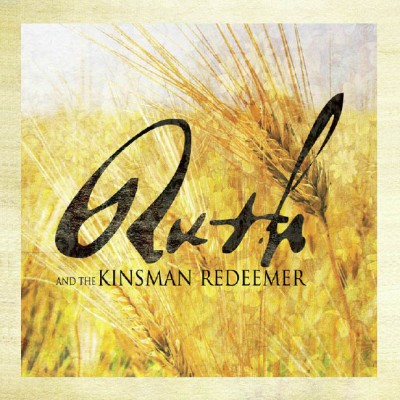Sermon Summary
This morning, Pastor Dan presented Part 3 of a four-part series on the Old Testament book of Ruth. Last week, we learned that Ruth and her mother-in-law Naomi returned to Naomi’s homeland, Bethlehem, at the exact time of the wheat harvest. There, the two poor widows managed to survive by Ruth’s gleaning from the wheat fields. By God’s providence, Ruth ended up gleaning from a wealthy, godly landowner named Boaz, who turned out to be a close relative of Naomi’s husband, Elimelech. Boaz, who was a godly man during an otherwise dark, evil time in Israel’s history, was impressed with Ruth’s godly commitment and love she had shown to his relative Naomi.
One day, Naomi said to Ruth, “My daughter, it’s time that I found a permanent home for you, so that you will be provided for” (Ruth 3:1). A young woman such as Ruth could remarry and have a more stable future than two widows would have living together. Naomi was thinking practically and realistically; she even had a suitor in mind! Naomi told Ruth, “Boaz is a close relative of ours, and he’s been very kind to you…” (Ruth 3:2). There’s a lot of Hebrew culture behind the two words “close relative.” God’s solution for Jewish women who found themselves widowed and without an heir is stated in Deuteronomy 25:5: “If a man dies without a son, his widow may not be married to anyone from outside the family. Instead, her husband’s brother must marry her and fulfill the duties of a brother-in-law.” You see, Israel was an agrarian society, and if a widow didn’t have land and sons to work it, well, she was “up a creek without a paddle.”
Not only had Naomi picked out a suitable spouse for Ruth—she even had a fully-developed plan for how to propose! Ruth was to go to Boaz that evening at the threshing floor where he was asleep and lie next to him. She did as Naomi instructed, and Boaz awoke, surprised to find a woman lying at his feet! “Who are you?” he asked. “I am your servant Ruth,” she replied. “Spread the corner of your covering over me, for you are my family redeemer.” “The LORD bless you, my daughter!” Boaz exclaimed. “You are showing even more family loyalty now than you did before, for you have not gone after a younger man, whether rich or poor…I will do what is necessary, for everyone knows you are a virtuous woman” (Ruth 3:6-11).
In order for Boaz to be Ruth and Naomi’s kinsman-redeemer, he needed to be (1) a close relative who was, (2) able to help, and (3) willing to help. Those women had a desperate need, and they called on their close relative to help. Toward what greater spiritual truth were the laws regarding human kinsman- redeemers intended to point? To “redeem” is to buy back, to recover, to rescue. Ruth and Naomi had physical needs, but we all have spiritual needs. We all need rescue. We all need redemption—and, praise God—we have a Kinsman- Redeemer! The same exact Hebrew word, translated kinsman-redeemer, which was used for Boaz, is also applied to our God!
The Book of Ruth presents to us in story form all of the wonderful themes which come to full fruition in Christ. Those whom God redeems, the church, is the bride of the Lord Jesus Christ, who is the Holy One, our might Savior, the Creator and God of all the earth! Regulations regarding human kinsman-redeemers were given not only to protect and provide for the vulnerable in Israel, but to prefigure Christ, the Redeemer of the world.
Jesus meets all of the criteria to be our kinsman-redeemer. He became man, so he is our close relative. He is sinless God, so he is able to redeem. He loves, and so he is willing to redeem. God rescued us from the domain of darkness, and transferred us to the kingdom of his beloved Son, in whom we have redemption, the forgiveness of sins. Jesus gave himself for us to redeem us from every lawless deed, and to purify for himself a people zealous for good deeds. When we are redeemed, and when on a daily basis our redeemer is purifying us, one of the good deeds we will be zealous for is caring for our needy brothers and sisters in Christ, as Boaz cared for his kin. When the Scriptures encourage us to do good to all people if we have opportunity, believers have a special obligation to help those who are of the household of faith.
Application / Challenge
- If a neighbor or friend at work asked you, “What kind of stuff do they talk about at your church?”, how would you summarize the most important elements of this week’s sermon and the key lessons you intend to apply to your life? Explain it in plain language anyone could understand.
- Make certain that you are redeemed, that you have been “delivered from the domain of darkness”. Read and believe the truths contained in the booklet, Would You Like to Know God Personally
- Take a “Master-Class in Real Love” from Naomi, Ruth, Boaz—and the ultimate Redeemer, Jesus Christ. How are you doing at loving your “kin”—your Christian family?
TCCExtra Resources
- “What happened on that pile of wheat?“ – An audio resource about Ruth and Boaz encounter: This file is a conversation between Pastor Dan Clement and Jim Dieffenderfer about Ruth and Boaz on the pile of wheat. While not explicit in nature by any means, Pastor Dan felt it best to give you access to this as an additional resource and not include it in his Sunday Sermon.


